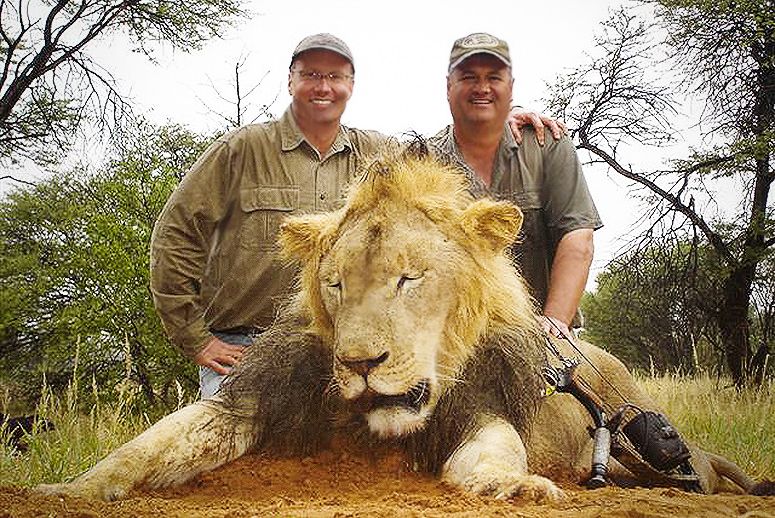While most Americans oppose trophy hunting – treating it as far more unjustified than hunting animals for meat – they have a special revulsion for trophy hunting of threatened and endangered species.
Think Walter Palmer of lion-hunting infamy.
When it comes to hunting elephants, rhinos, or other mega-fauna, the sane person not only objects to gratuitous killing of these remarkable animals for bragging rights and the display of a head, hide, tusks or horns, but also for taking an action inimical to conservation and putting one more pressure point on already fragile populations.
This week, the U.S. Fish and Wildlife Service announced it would grant an import permit for an endangered black rhino killed by an American trophy hunter in Namibia. The prehistoric-looking rhinos are some of the rarest large mammals on Earth. And, when looking at the fairness and degree of difficulty in hunting these three-ton creatures, they’re about as difficult to shoot as a slow-moving school bus.
The apologists for rhino hunting repeat the talking point that Namibia has a sound conservation program, and that the targeted animal was a “post reproductive male.” But there really is no such thing as a post-reproductive male, and there’s been a terrible surge in poaching throughout all of southern Africa.
What’s more, what part of President Trump’s declarations last fall did the U.S. Fish and Wildlife Service not hear, when he tweeted that trophy hunting of elephants and other animals was a “horror show.”
Indeed, maybe some of the Service bigwigs did pick up that message, because The Hill reported recently that America’s small but destructive community of trophy hunters is upset with the agency because it has not approved import permits for African elephant tusks.
But in addition only partially absorbing President Trump’s disdain for trophy hunting, some agency officials also seem to disregard a larger point: we are asking poor Africans not to kill rhinos or elephants for horns or tusks that they can sell for cash in the global wildlife trade, but we’re signaling that it’s perfectly okay for rich Americans to travel thousands of miles from home and spend lavishly with their discretionary income to kill the biggest mammals in the world for a couple of their body parts?
That kind of contradictory thinking undercuts on-the-ground conservation and rural Africans can see through that sort of moral double-speak. African wardens are dying to defend these creatures in the bush and on the savannas from well-armed poachers, but they’re supposed to give a pass for the Americans led around by the nose by a hunting guide for a guaranteed kill?
And let’s remember that trophy hunting of rare animals isn’t just an issue when it comes to African wildlife. Our rare mega-fauna in the U.S. are also under the gun.
A federal court stayed, for at least a few weeks, the first grizzly bear hunt in decades in the Yellowstone National Park region. That court fight continues, and the lives of grizzly bears accustomed to being watched by tourists hang in the balance.
And last week, 32 Democrat Senators wrote to their Appropriations Committee leaders and urged them not to allow any anti-wildlife riders on the 2019 Interior spending bill. One concern they expressed is for gray wolves, because U.S. trophy hunting organizations and their allies with state fish and wildlife agencies want to lift their endangered and threatened status so that trophy hunters can get to them in Michigan, Minnesota, and Wisconsin.
This strong showing from Democrats may be enough to keep the riders off the spending bill.
Nobody eats grizzlies or wolves, and the people who target them are seeking bragging rights and heads and other body parts. It’s a similarly problematic escapade, from a moral and conservation perspective, when compared to the foreign killing sprees in Africa, except for the shorter flight time.
Our federal government, responding to the wishes of rank-and-file Americans, shouldn’t tolerate any of it. From an economic perspective, these creatures are worth far more alive than dead. The universe of wildlife watchers dwarf the trophy hunters, and let’s hope that ratio gets even more lopsided in the years ahead.
